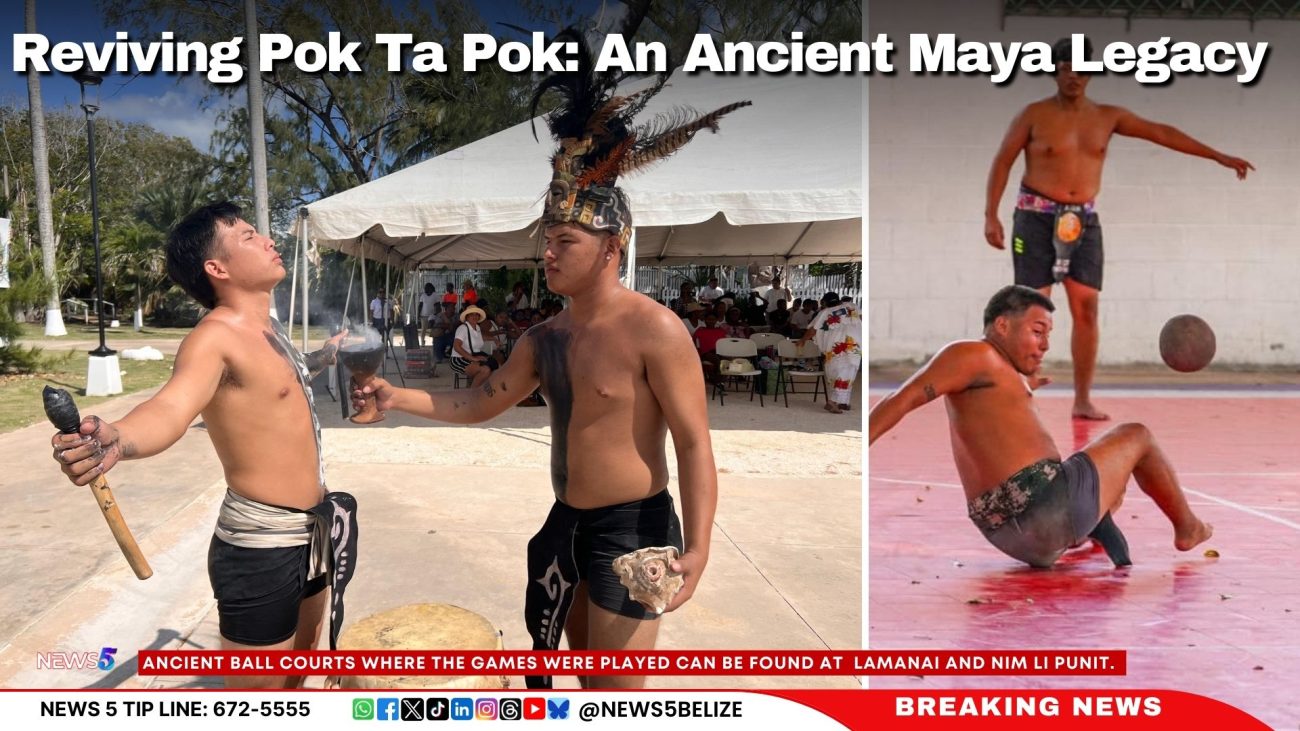Reviving Pok Ta Pok: An Ancient Maya Legacy
Pok Ta Pok, the ancient Maya ball game, is a profound testament to the ingenuity, spirituality, and cultural depth of one of Mesoamerica’s most sophisticated civilizations. Played over 3,000 years ago, this game transcended mere sport, embodying cosmic balance, spiritual beliefs, and social order.
And what was once something of the past is now something of the present. Today, efforts to revive Pok Ta Pok have gained momentum, especially in Belize, where cultural organisations and communities are reintroducing the sport to new generations.
Mayan priestess and founder of two Pok Ta Pok teams in Belize, Felicita Cantun, said, “It is not just a game. It is something more spiritual.”
At its core, Pok Ta Pok involved striking a solid rubber ball using only the hips, aiming to propel it through stone hoops. However, its significance extended far beyond physical prowess. The game symbolised the eternal struggle between light and darkness, often serving as a ritual to honour the gods or as a ceremonial resolution of disputes.

“It’s very important because I said it is not just a game. It was used as a means of settling disputes. Instead of going to war, they play a game, and anyone who wins, well, the dispute is settled. It was used to honour the gods, to give thanks for a good crop, to ask for whatever, during sickness. We offer this game to show our gratefulness, to show our thanks. We also play this game to ask for his guidance. So it is very important to us Mayas,” added Cantun.
Ancient ball courts where the games were played can be found at archaeological sites like Lamanai and Nim Li Punit.
Cantun says that this revival is more than a return to culture and tradition; it is a celebration of Maya heritage as it offers a tangible connection to the past while fostering pride among modern Mayas.
The Visionary Revival
In 2015, an impassioned Cantun took the bold step to rekindle the ancient game, forming the first team, Ek’ Balam, which signifies the jaguar, a revered spirit animal in the Maya culture. Over time, this effort evolved into the creation of a second team, K’iinich Ahau, named after the Maya Sun God.
Cantun says that K’iinich Ahau remains a young team; it has rapidly gained recognition. Comprising both male and female players across senior and junior divisions, the team has represented Belize in international tournaments, achieving remarkable milestones. The inclusion of women, who were initially hesitant, has been especially transformative, as evidenced by a historic first-place trophy won by the women’s team in September.
“Together, our team has 40 members. And very often more people ask to join. But it is a very expensive game. I am happy that this game has already, um, captured the interest of the youths,” Cantun said.

She added, “What makes me more proud is the women. Never did I imagine that the girls would be brave enough to play this game, but it is happening. Just on the 21st of September, we came from a tournament where the female team brought back the first-place trophy. So it is very satisfying to realise that this game has been revived.”
A Future Rooted in Culture and Tradition

According to Cantun, the revival of Pok Ta Pok has not been without its hurdles. Initially, assembling a team of youth players willing to don the traditional attire—a simple loincloth—met with scepticism from some family members. There were also financial constraints, particularly the cost of the solid rubber balls and traditional uniforms. She said, “As I say, it’s a very expensive game because people from Toledo, people from these places, they are interested. But whenever they hear the cost of the ball, the cost of the attire, then they are not so readily eager to join.”
For the past years, Belize has been represented at the Pok Ta Pok World Cup, with Cantun’s teams emerging victorious. Belize hosted the most recent games held in 2023. A team from Mexico was the winner.
According to Cantun, she sees Pok Ta Pok becoming a national sport in the near future. “I want this game to be played all over Belize. I think it will happen soon that we will have this Pok Ta Pok all over Belize.”
Cantun says that the game’s revival serves as both a celebration of ancestral traditions and a unifying force for contemporary Belizeans. She says that its spiritual essence—where players represent celestial bodies and engage in a symbolic cosmic dance—underscores its cultural significance beyond mere competition.
The resurgence of Pok Ta Pok has even inspired creative innovations, such as torch-lit nighttime matches and immersive educational exhibits.
According to Cantun, the revival of Pok Ta Pok exemplifies the critical importance of sustaining cultural practices that transcend time. She says by embracing their ancestral heritage, Mayas are not only preserving their history but also enriching their national identity.








Facebook Comments